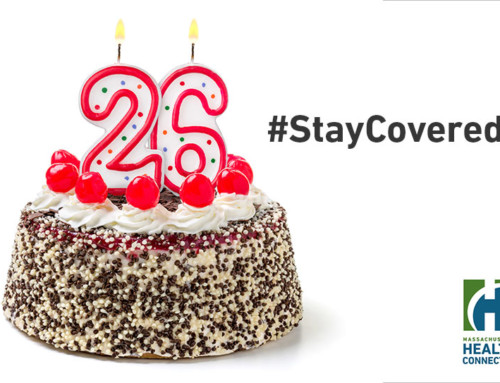Not all companies selling health insurance are actually selling you good coverage. Some companies may try to sign you up for a “scam plan” that doesn’t meet legal requirements or may not even be real. These plans look affordable on the surface, but they may not offer the services or benefits you need to meet state standards. They may end up leaving you with big bills if you need care.
That’s why it’s important to be a smart insurance shopper. Use these tips to watch out for plans that won’t be there for you when you need them, and learn how to find a health plan you can trust.
Checklist for choosing health insurance you can trust
- Beware of unsolicited offers of health coverage over the phone or online. Many predatory companies will call you on your phone. They may use high-pressure sales tactics and claim that they can offer you low-cost access to name-brand health plans. If you get a call from a salesperson offering you health insurance, follow these tips to protect yourself:
- Research a phone number or company online to check its history.
- Never share personal information with an unsolicited telemarketer.
- Know that legitimate calls from the Health Connector about your coverage will only come from 1-877-623-6765, and state that “we’re calling from the Massachusetts Health Connector.”
- Check with the Division of Insurance (DOI) to make sure the health plan is legitimate. You should only buy health insurance from a company that is licensed by the DOI or part of a public program like MassHealth, Medicare, or ConnectorCare. You can check if a plan is licensed by calling DOI’s Consumer Hotline at 617-521-7794. You can also find a list of licensed plans on the DOI website. Click on the link titled “Coverages Available for Individuals and Small Groups effective on or after January 1, 2023.” (PDF)
- Check to make sure the health plan meets Minimum Creditable Coverage. If a plan does not meet the minimum requirements for comprehensive coverage in state and federal law, you could owe a state penalty at tax time. Ask your health plan if they meet “Minimum Creditable Coverage.” If the answer is yes, try to get the assurance in writing.
- Be on the lookout for certain types of plans or offers. When you are shopping for health coverage, know that the following types of coverage offers, even if not scams, may not protect or cover your costs if you need care and may not meet state and federal requirements:
- Short-Term Health Plans and Association Health Plans. These plans may not contain the same protections that are required for Massachusetts plans under state law and federal law. That could leave you and your family on the hook for unexpected costs.
- Health care sharing ministry plans. These plans allow groups of people with a religious affiliation to share in the costs of some health care, but they are not insurance, and they do not necessarily cover expenses for the same kinds of services that health insurance covers.
- Discount plans. Discount plans/cards do not pay anything toward your medical claims. Instead, they may allow you to get a discount on some of your medical expenses. They may promise big savings, but you may end up with no savings and no way to get your money back.
Make sure you get the protection you need
Plans that meet state and federal requirements, including Health Connector health plans and health plans that are licensed by DOI, will protect you in the following ways:
- Cover pre-existing conditions. Pre-existing conditions means a health problem, like asthma, diabetes, or cancer, you had before the date that new health coverage starts.
- Cover important Essential Health Benefits like preventive care, mental health care, prescription drugs, and women’s care
- Limit the amount you might pay in out-of-pocket costs when you seek care in a year
- Meet state tax requirements for comprehensive insurance (known as Minimum Creditable Coverage)
- Include state and federal financial help to lower your costs if you qualify (only for plans sold through the Health Connector)
Plans that meet state and federal requirements will not:
- Charge women more than men
- Limit the amount your insurance plan will pay for your care over the course of the plan year or in your lifetime
- Charge you more for pre-existing conditions
- Charge an “enrollment fee” to get covered, only your monthly premium
You won’t find these protections in plans that don’t meet state and federal requirements.
When you’re shopping for health insurance, always read the fine print. Make sure you review a copy of the Summary of Benefits and Coverage and other coverage documents.
Where to look for trusted coverage that meets all state requirements
Individuals, families, and small businesses have many options to shop for coverage that meets state and federal requirements and protections. Here are ways to safely shop for health insurance coverage that meets requirements:
- Shop through the Health Connector at MAhealthconnector.org or call 1-877-MA-ENROLL (1-877-623-6765), or TTY 711 for people who are deaf, hard of hearing, or speech disabled. You can also get free, in-person help with shopping at one of the Health Connector’s walk-in centers, or through an Enrollment Assister organization. Find free, in-person help
- Shop directly with insurance carriers that have been licensed by the Division of Insurance to sell Qualified Health Plans
- Shop with a broker licensed by the Division of Insurance Find a licensed broker through DOI
If you have questions about a health plan or insurance company
If you think you may have fallen victim to a scam or if you have questions about a health plan or insurance company, please call the Division of Insurance Consumer Services Unit at 617-521-7794 or Attorney General’s Health Care Helpline at 1-888-830-6277.










